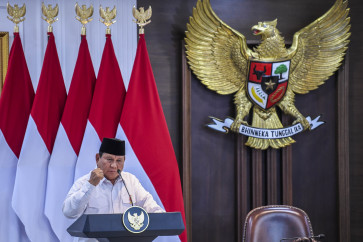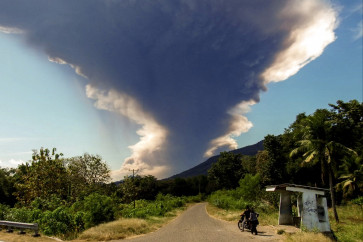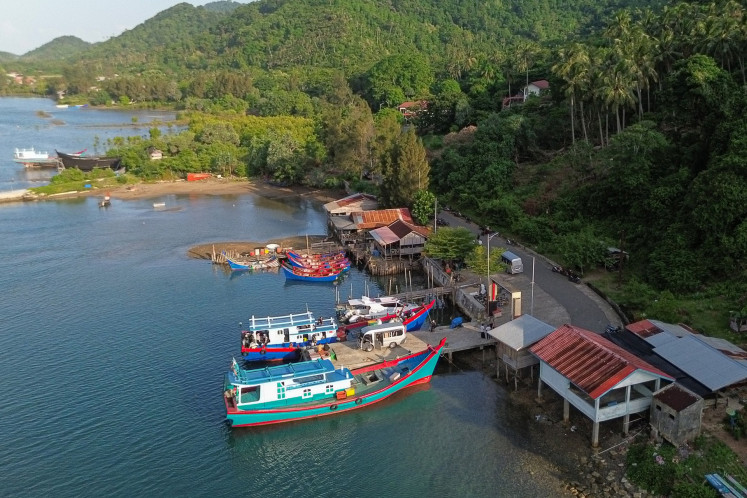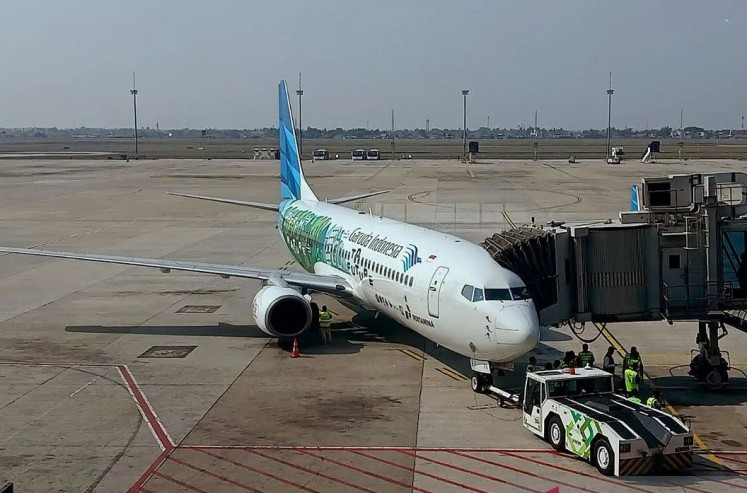Popular Reads
Top Results
Can't find what you're looking for?
View all search resultsPopular Reads
Top Results
Can't find what you're looking for?
View all search resultsBumi Resources ditches oil and gas operations in Yemen
Indonesia’s largest thermal coal mining company, PT Bumi Resources (BUMI), has decided to forsake its oil and gas block in Yemen following a prolonged conflict in that country, leaving the company with nothing but a loss of hundreds of millions of dollars
Change text size
Gift Premium Articles
to Anyone
I
ndonesia’s largest thermal coal mining company, PT Bumi Resources (BUMI), has decided to forsake its oil and gas block in Yemen following a prolonged conflict in that country, leaving the company with nothing but a loss of hundreds of millions of dollars.
“We decided to completely stop our operations in Yemen in 2016, with zero return and a loss of around $300 million in various expenses, including for exploration,” Bumi Resources president director Ari Saptari Hudaya said recently.
Bumi is one of several foreign investors that—like moths to a flame—were attracted by Yemen’s energy industry at the end of the last century, especially since the first commercial discovery of oil at Block 18 of the Marib-Jawf field in the country’s western part in 1984 and the first production and export in 1986.
According to the Oil and Gas Journal, Yemen’s oil production jumped from 10,000 barrels of oil per day (bopd) in 1990 to 440,800 bopd in 2000, when its oil and gas reserves were estimated to stand at four billion barrels and 16.9 trillion cubic feet (tcf), respectively.
In 2000, Bumi bought a 97.5 percent stake in UK-based Gallo Oil for $1 billion.
At the time, Gallo Oil had been operating two oil and gas exportation concessions in Yemen since 1997, namely Block R2 in the East Al Maber area, Hadramaut territory, and Block 13 in Wadi Al Armah area, Al Mahara territory.
Bumi then started Gallo Oil’s drilling operations at those blocks in 2002, hoping to jump in on the oil and gas boom in Yemen. As of February 2015, it had disbursed $374.53 million for exploration in the country.
“After years of exploration, we’ve found out that the Block R2 is dry. Meanwhile, we’ve recently found gas reserves amounting to 10 tcf at Block 13, but we are unable to exploit it as the block is controlled by the Houthis,” Ari said.
The Houthis are rebels that claim to represent the Shia community.
The group has teamed up with security forces loyal to Yemen’s former president Ali Abdullah Saleh in a war against a coalition of Arab states, which was formed two years ago at the request of Abd-Rabbu Mansour Hadi, Saleh’s successor who resigned in January 2015 due to the rebellion.
During the war with the Houthis, the coalition has dropped more than 8,600 bombs, destroying countless homes and public facilities and killing thousands of people.
“We are still trying to find a way in the administrative process to officially pull out our operations in Yemen, because, as of today, it remains unclear who the government is,” Ari added.
Bumi took the decision to walk out of Yemen amid a turnaround in its financial performance.
It recorded a net profit of $101 million in 2016, reversing a net loss of $1.92 billion in the previous year. The turnaround was reportedly a result of its efforts to reduce fuel use in production and to optimize electricity generated from its own power plants.
It has also sealed an agreement to extend the period of its debt postponement petition (PKPU) in a bid to restructure its debt, following its inability to pay liabilities amounting to Rp 135.78 trillion ($10.18 billion) to 270 creditors and bondholders.
Bumi has says its commercial debt stands at $4.2 billion and will fall to $1.6 billion once its debt-restructuring scheme is fully implemented this year.
On Jan. 20, it also petitioned a Manhattan bankruptcy court for protection under Chapter 15, which is the section of the US bankruptcy code that deals with international insolvency matters.
Chapter 15 allows foreign entities to get protection and maximize the value of its assets as it facilitates the rescue of financially troubled businesses, thereby protecting investment and preserving employment.
If there is no objection from creditors and bondholders until March 2, Bumi hopes the US court will grant the Chapter 15 protection on March 16.
“As of today, there has been no objection, and we already have a 96 percent approval for the PKPU. So, it should not be a problem for us,” Bumi Resources chief financial officer Andrew C. Beckham said.










